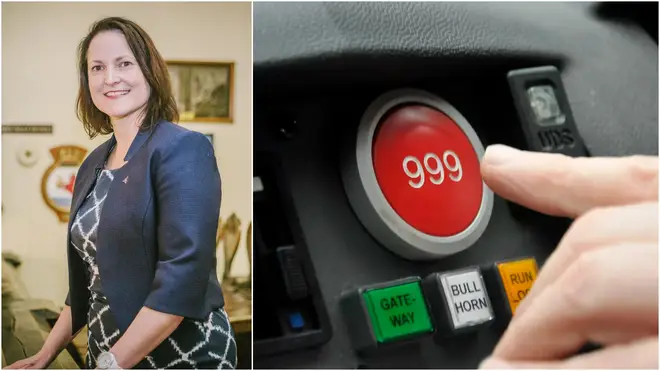
Ali Miraj 12pm - 3pm
24 October 2019, 23:03

A Police and Crime Commissioner has been criticised after urging women to call emergency services if they are cat-called or wolf-whistled at in the street.
Speaking to the press on Thursday, Devon and Cornwall's Police and Crime Commissioner Alison Hernandez urged women to make 999 calls if "you've ever felt unsafe or felt threatened on the street."
Ms Hernandez was replying to a message from Rebecca Broad, a freelance writer from Exeter, who asked on social media if anyone knew anything "being done to tackle catcalling in Exeter (or nationwide)?"
Ms Broad Tweeted: "Whether it’s the unintelligible jeers I just got while walking a dog, or the horrific rape threat a few months ago, I’m SO fed up.
"Not yet managed to recover from the shock quickly enough to record car regs."
The Conservative politician responsible for police and crime in two souties in the south-west replied: "I would suggest Rebecca call 999 next time if she feels threatened while out and about.
"And to definitely report time, location and any description she has for what has already happened."
I would suggest Rebecca call 999 next time if she feels threatened while out and about. And to definitely report time, location and any description she has for what has already happened via the many methods https://t.co/R5xCLhkhAW
— Alison Hernandez (@AlisonHernandez) August 29, 2019
Guidance issued from the police on when people should call 999 says they should only do so if "a crime is happening", "someone is in immediate danger", "a suspect for a serious crime is nearby" or "there is a traffic collision involving injury or danger to other road users."
Responding to the advice Ms Broad said: "Wow - didn't even think to do this. I guess that shows how ingrained it is in me to hear comments from cars and bow my head and accept that they're part of walking the streets alone."
But with resources are stretched in Devon and Cornwall, crime reported in the area has risen by 30% over the last two years, and the force's resources have been cut by 15%.
In August 2019 a police dispatcher told the i newspaper "there just aren’t enough police officers out there," suggesting in one shift the 999 call centre took 800 calls in one shift.
In Cambridgeshire, the police said high priority 999 calls took on average 11 minutes for police to reach the scene in 2010 but in 2018 it took 20 minutes.
One Twitter user said it was "concerning" that the Commissioner was encouraging people to use the 999 system for something that was not serious crime or a threat to life.
Concerning that the PCC thinks the 999 system is to be used for this. 999 is for serious crime in progress or threat to life. May I suggest taking down the number plate and reporting online instead? 999 is overused as it is.
— Tango Romeo (@islandlife1279) October 24, 2019
Devon and Cornwall Police said it treated "sex or gender-based hate crimes or incidents seriously."
Such offences included "misogynistic acts such as wolf-whistling or catcalling", the force said, and it encouraged people to report them.
The College of Policing said police forces are "free to extent their own [hate crime] policy response to include the hostilities that they believe are prevalent in their area, or that are causing the greatest concern to the community."
And some forces have classified misogyny as one of the characteristics which could motivate a hate crime. In 2016 Nottinghamshire Police in was the first force to do so followed by North Yorkshire Police the next year.